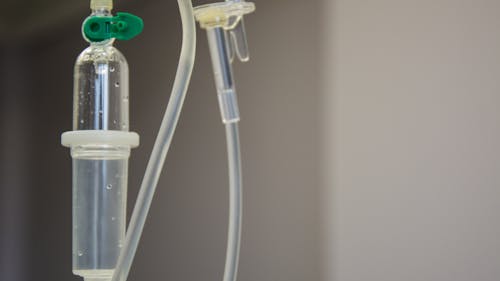Rutgers-led study develops treatment for UTIs, drug-resistant infections

A recent Rutgers-led international study has found a new combination of antibiotic treatments that are more effective in treating complicated urinary tract infections (UTIs) and fighting other infections that are commonly resistant to drugs, according to an article from Rutgers Today.
Keith Kaye, the principal investigator of the study and chief of the Division of Infectious Diseases, Allergy and Immunology at Robert Wood Johnson Medical School, said the study was conducted by testing patients who were older than 18 and facing severe UTIs, which infect the bladder, or acute pyelonephritis, which infects the kidney.
Kaye said most of the research was recorded from participants in European and Asian regions so they could be kept in a controlled environment in the hospital. Medical facilities in the U.S. do not keep patients for extended periods for research purposes, he said.
"(That sort of process) is very unusual in the United States," he said. "That's why (the researchers) had to include subjects where the more standard therapy is to keep people in the hospital for the duration of therapy, and there's not a push to get them discharged as soon as possible."
In general, individuals face differing experiences with how long UTIs last and how often the infections recur, Kaye said. In light of this, participants in the study were kept in the hospital under observation for seven to 14 days to monitor how their bodies reacted to the treatment.
Kaye said the results of the study showed that the new combination of drugs used in the study was highly effective in treating complicated UTIs and acute pyelonephritis.
"I think we had hypothesized that it would be superior to piperacillin-tazobactam (previous treatment) for those resistant infections, but actually, it was superior across the board for all the infections," Kaye said. "So I think we expected it to work well, but how well it worked was a pleasant surprise."
While the researchers were already expecting to gain new results from this study, these findings turned out to be even more valuable than they expected, he said.
Kaye also said that another important aspect of the treatment was that it could fight against durable pathogens — agents that produce diseases — that were previously unaffected by old drug combinations. Extended-spectrum beta-lactamase (ESBL) is a pathogen that directly causes UTIs, and the treatment is able to fight against it.
ESBL pathogens are commonly known in the medical field for their resistance to treatments, so this new combination of antibiotics is a unique medicine that will become a very useful solution, even for recurring infections as well, he said.
Kaye said the researchers designed the study as a "standard phase three clinical trial," which requests authorization from the U.S. Food and Drug Administration (FDA) to be able to use the new treatment on patients outside of the study.
After being approved by the FDA, the treatment will initially be distributed within hospitals, as patients must receive it through intravenous (IV) therapy since there are currently no options for the treatment to be received orally, he said.
Kaye said it could be possible in the future for patients with quality at-home IV therapy or those in nursing homes to receive a prescription for the treatment instead of having to receive it in a hospital.
"Resistant organisms are here to stay," he said. "We need new agents. We need alternative strategies for managing these infections. We need to limit use as much as possible, but when we need effective therapies, it's nice to have new and powerful options to choose from."



